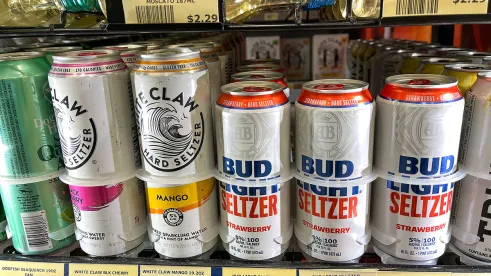Rome wasn’t built in a day. Patience is a virtue. Pick your cliché to describe the glacial, but perceptible pace of the evolution of Alabama’s alcohol rules. There were a number of changes to alcohol laws in the most recent legislative session, and there were areas where changes desired by the alcohol industry were not enacted. Below we list three that we think merit consideration by those in the alcohol business in Alabama (and those considering joining the party).
Food Trucks
Beginning September 1, food and beverage trucks can sell alcoholic beverages within designated entertainment districts. The law permits such sales in all classes of cities; however, cities retain the power to prohibit food trucks from selling alcohol.
To sell alcohol, food trucks must apply for a “food or beverage truck” license from the Alabama Alcoholic Beverage Control (ABC) Board. Licensees must also comply with all rules applicable to an “on-premises” licensee aside from the seating and restroom requirements. The fee for the license is $300. Applicants must also obtain a certificate from the relevant municipality approving the license.
Food trucks may offer liquor, wine, or beer for sale and customers can purchase multiple drinks at once. If selling alcohol, the food trucks cannot be located within 150 feet of the entrance of an Alabama ABC licensee. The ABC Board may also require food trucks selling alcohol to install security cameras.
Volume of Alcohol for Curbside
As of August 1, the volume of alcoholic beverages sold curbside increased to the same volume permitted for home delivery. The new law allows for the below amounts to be sold for curbside pick-up or takeout:
Liquor – 9,000 milliliters per customer in a 24-hour period, the equivalent of 12 fifths, except in restaurants. Restaurants are limited to 375 milliliters of liquor (half of a fifth) per customer, and liquor must be accompanied by a food order.
Table wine – 9,000 milliliters or the equivalent of 12, 750-milliliter bottles of table wine per customer.
Beer (excluding draft beer) – 120, 12-ounce containers of beer per customer.
Draft beer – 288 ounces, or less, per customer.
The drinks must be in sealed, unopened containers.
Pre-Mixed Liquor Drinks
Unfortunately for High Noon fans, lawmakers did not approve the sale of cocktails-in-a-can in grocery and convenience stores. Lawmakers have said that one point of contention among interested parties concerned the distribution rights to retail stores. So, instead of outright approval, lawmakers passed a joint resolution creating a new task force that will study the licensing and distribution issue between now and the next session. The Mixed Spirit Beverage Task Force, consisting of five members from each legislative chamber, is to submit recommendations for legislation on the distribution, sales, and taxation of cocktails-in-a-can to the governor by the fifth day of the 2024 regular session. [Editor’s note: Sign me up for a slot on the Mixed Spirit Beverage Task Force.]
The cocktails are currently only sold in package and ABC Board stores in Alabama. Drink manufacturers and distributors argue the cocktails have the same or less alcohol by volume as beer and wine products and should be sold in the same places. According to the distilled spirits council, beer and wine-based, ready-to-drink beverages can be sold in more than 4,600 Alabama locations whereas spirit-based drinks are only sold in 980 locations.
The two bills that did not pass (SB321 and SB194) would have required mixed spirit beverages to be distributed through a licensed wholesaler and sold through retailers licensed for either on-premises or off-premises consumption. Additionally, both bills would have created a new category of ready-to-drink liquor beverages called mixed spirit beverages. Under both, a mixed spirit beverage was defined as being packaged in a single-serving container of no more than 16 ounces that contains no more than 12.5% alcohol.
Grocery and big-box retailers spoke in favor of the legislation, while package store owners and soft-drink bottlers testified against it. Curtis Stewart, administrator for the Alabama ABC Board, voiced his concern that the bills would have allowed for the sale of cocktails that could contain three times as much alcohol content as the average beer. Also, according to Stewart, the increased distribution network would give underage drinkers better access to drinks with higher alcohol content.
In the end, and as these things tend to go, industry got some but not all of what it wanted. If you have any questions about these laws or food, beverage, or hospitality laws in Alabama, give us a call and let us buy you a beer.





 />i
/>i

